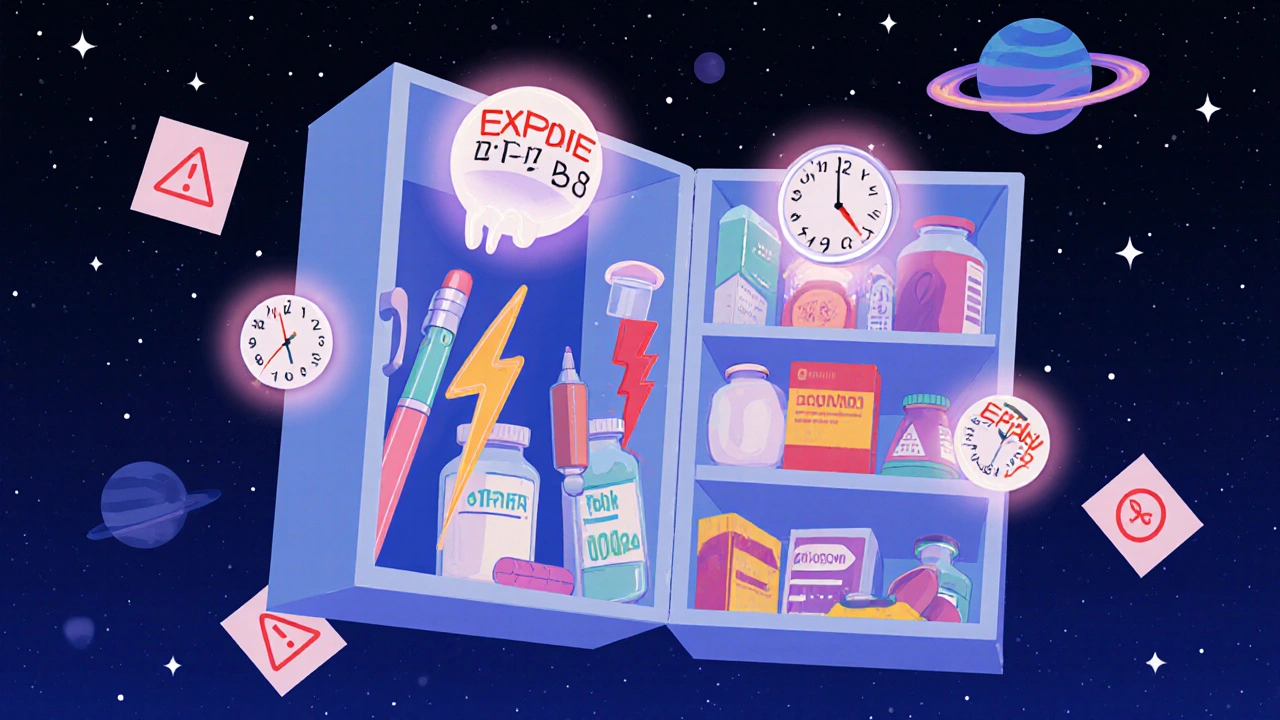Medication Expiration: What You Need to Know About Expired Drugs and Safety
When you see a date on your medicine bottle labeled medication expiration, the date by which the manufacturer guarantees full potency and safety, it’s not just a suggestion—it’s a line in the sand. That date isn’t random. It’s based on real testing. After it passes, the drug might lose strength, break down into harmful substances, or become less effective. You wouldn’t eat spoiled milk. Don’t take expired medicine either.
Not all expired drugs are dangerous right away, but some are. Antibiotics like tetracycline and doxycycline can break down into toxins that harm your kidneys. Insulin loses its ability to control blood sugar. Epinephrine auto-injectors for anaphylaxis may not work when you need them most. Even common painkillers like ibuprofen or acetaminophen can degrade over time, especially if stored in humid places like bathrooms. The shelf life, how long a drug remains stable under proper conditions depends on how it’s made, what’s in it, and how you store it. Heat, light, and moisture are the biggest enemies. Keep pills in a cool, dry drawer—not above the sink or in the car.
Many people think if a pill looks fine, it’s still good. That’s a myth. You can’t tell by color, smell, or texture. A tablet might look perfect but have lost 30% of its potency. And if you’re treating something serious—like high blood pressure, seizures, or infection—losing even a little strength can be risky. Some studies show that certain heart medications become unreliable after expiration, increasing the chance of a bad outcome. The FDA, the U.S. agency that sets drug safety standards says most drugs are safe for a year or two past expiration, but they don’t guarantee it. And that’s the key: you’re taking a gamble.
What about those old bottles in your medicine cabinet? If it’s a life-saving drug like an EpiPen, nitroglycerin, or insulin, throw it out and get a new one. For minor stuff like antihistamines or pain relievers, you might be okay for a few months past the date—if stored well. But if you’re unsure, or if the pill is cracked, discolored, or smells weird, don’t risk it. Your local pharmacy can help you dispose of old meds safely. No need to flush them or toss them in the trash where kids or pets might find them.
There’s a bigger picture here too. Why do we have so much expired medicine? Partly because we stockpile. We buy extra during sales. We hold on to prescriptions "just in case." But that leads to clutter, confusion, and risk. A simple habit—checking your medicine cabinet every six months—can prevent accidents. Write the date you opened a bottle on the label. Know what’s in your medicine cabinet. And if you’re ever in doubt, ask your pharmacist. They’ve seen it all.
Below, you’ll find real stories and facts about what happens when medicine goes bad, how storage affects it, and what to do when you find an old pill bottle. Some posts cover dangerous interactions with expired drugs. Others explain how generics stay stable, why some medications are more fragile than others, and how to store them right. This isn’t about fear. It’s about being smart with your health. Because when it comes to your medicine, expiration dates aren’t just ink on plastic—they’re your safety net.
How to Create a Medication Expiration Review Schedule
Learn how to create a simple, effective medication expiration review schedule to avoid unsafe or ineffective drugs. Step-by-step guide for home use, with tips on storage, disposal, and high-risk meds.
More
